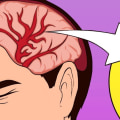Autism spectrum disorder (ASD) is a complex neurological condition that affects communication, behavior, and social interaction. It is estimated that 1 in 54 children in the United States are diagnosed with ASD. While there is no cure for autism, there are treatments available that can help reduce symptoms and improve functioning. Behavioral approaches are the most widely accepted and evidence-based treatments for ASD.
These approaches focus on understanding what happens before and after behavior to change it. Applied Behavioral Analysis (ABA) is one of the most notable behavioral treatments for people with ASD. It encourages desired behaviors and discourages unwanted behaviors to improve a variety of skills. In addition to behavioral approaches, there are other therapeutic options that may be tried, such as occupational therapy, speech therapy, physical therapy, and drug therapy.
Research has also shown that children with ASD who had two 30-minute Intensive Play Group (IPG) sessions a week for 4 months improved their quality of play, used their toys in a more typical way, and showed better social interaction with their peers. Early intervention during the preschool years can help your child learn critical social, communication, functional, and behavioral skills. Your healthcare provider can recommend options and help identify resources in your area. If your child is diagnosed with autism spectrum disorder, talk to experts about how to create a treatment strategy and build a team of professionals to meet your child's needs.
It is important to note that there are many treatments and interventions available for autism spectrum disorder, but there is no one-size-fits-all treatment. The goal of treatment is to maximize your child's ability to function by reducing symptoms of autism spectrum disorder and supporting development and learning. Many parents seek alternative or complementary therapies for their children with ASD, but these treatments have little or no research to show that they are effective. In fact, some alternative treatments are potentially dangerous and could unintentionally reinforce negative behaviors.
The most effective interventions available are behavioral therapies based on applied behavioral analysis (ABA). There are many different types of ABAs to choose from based on your child's strengths and needs. Children who received 20 hours of Early Start Denver Model (ESDM) per week (5 of the hours provided by parents) for 2 years showed more improvements in cognitive testing (IQ), adaptation skills, and symptoms of autism than those who received typical community treatment. Even if your child has not been officially diagnosed with autism spectrum disorder, he or she may benefit from certain treatments. Current treatments for autism spectrum disorder (ASD) seek to reduce symptoms that interfere with daily functioning and quality of life. The type of treatment your child receives for autism spectrum disorder depends on his or her individual needs.




